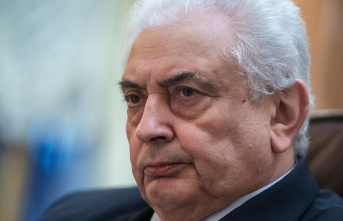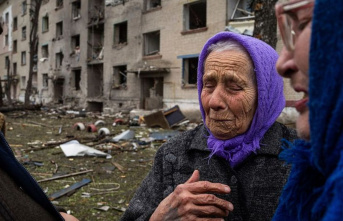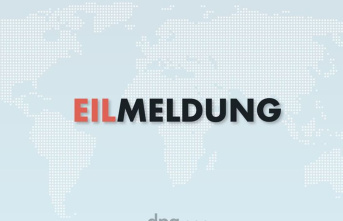"With the rape of this girl have abused the security forces, one of our sisters, and mother earth of miss. You have wounded the entire indigenous community of Colombia is difficult," says Johny Onogama Queragama, one of the leaders of the indigenous ethnic group Embera Chamí. 23. June seven soldiers of the Colombian army raped a minor girl in the vicinity of the Autonomous territory of the Embera Chamí, near the city of Pereira at the foot of the Andes.
At the 2. July, the commander of the Colombian army, General Eduardo Zapateiro had to admit, publicly, that since 2016 118 ongoing investigations because sexual violence against minors. It is a crime that has caused, in Colombia and abroad horror.
"I want to make it clear," emphasizes Onogama, the young Indigenous leaders to the DW: "The Colombian government must guarantee that justice is done and that there is no Indigenous will ever hurt again."
For María Camila Correa is this latest Incursion was "a clear example of the invisibility of gender-based violence, particularly against indigenous women" in the Colombian society. Correa, a lawyer and expert on gender-based violence at the Universidad del Rosario in Bogotá is. She pointed out that recently, in the case of an aboriginal girl was from the ethnicity of the Nukak Makú is known, the 2019 in Guaviare, a jungle departments of Colombia, was raped by members of the military.
in addition, there was the murder of the seven-year-old Yuliana Samboní - another crime against an indigenous girl who shook Colombia. Perpetrators of the renowned architect Rafael Uribe Noguera is. He kidnapped, raped and killed on the 6. December 2016 the girl from the ethnic group of the Yanacona. It came with his family to escape the guerrillas in the province of Cauca, in the Western part of the country to the capital.
expel Indigenous rights only on paper"us from our home and bring us in the cities are cement jungles", says Johny Onogama of the Embera. The history of its race harassment, to expel them from your country, threats by armed groups, the killing of their leader, and rape.
"The indigenous population in Colombia has a far-reaching, of the Constitution guaranteed protection. But he is not being implemented," says the attorney Correa, the area refers to the particular perfidy in the case of the Embera-girl: "It was raped by representatives of the state, which have the task to protect the girl and his community."
the individual cases? "Not at all," replies Diana Quigua, a lawyer at the Universidad Nacional de Colombia in Bogotá and members of the indigenous ethnic group of the Kubeo, in an interview with DW. She is also involved in the Colombian human rights organization, Dejusticia.
came For more than twelve years, the round table have been documented to women in armed conflict, Dejusticia and other organizations of the civil society in cases of sexual violence against indigenous women, reported Quigua. "As soldiers against the guerrillas went to war, also began to the suffering of the women in the Amazon region," said the lawyer. More and more girls under the age of 14 were unintentionally pregnant and indigenous women as victims of human trafficking to Brazil.
"The media reports about the rapes as if it were a football game," said the media analyst, Ómar Rincón, the magazine "Semana" after the murder of the seven-year-old Yuliana Samboní in the year 2016. Manuela Chamorro, who led a study on the life of the Embera in the streets of Bogotá, underlines the criticism of DW: "The Indigenous have tired, that after each act of violence against their communities, some of the media with television cameras, therefore, and you do not even ask what you think or what you need."
Embera-leader Johny Onogama Queragama draws a bitter conclusion: Although the peace Treaty in 2016, ended the civil war between the government and the guerrillas, "the war against us". More: "The pain of the rape of our children, the misfortune that brought us to the Corona-pandemic: the Hunger comes." In desperation, he asks: "do you Know a way how we can bring our government to help us?"
author: José Ospina-Valencia
*The post "Colombia's indigenous girls are released will be in danger" of Deutsche Welle. Contact with the executives here.
Deutsche Welle Date Of Update: 04 July 2020, 16:26










